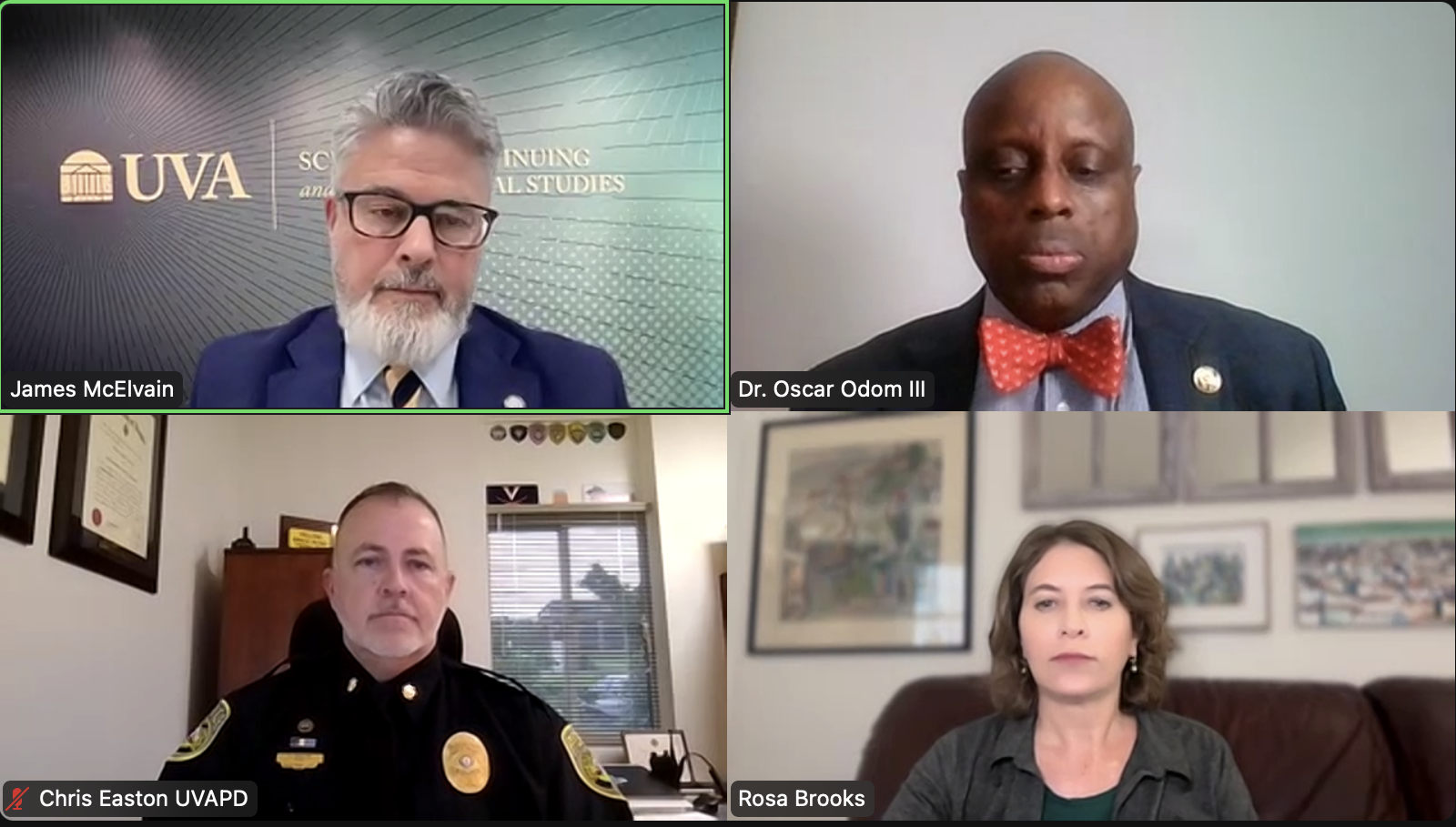Exploring the Impact of Education on Policing Practices
In a webinar titled "Does Education Matter in Policing," the UVA Center for Public Safety and Justice hosted a distinguished panel of law enforcement professionals that shared insights on how education shapes effective policing practices. Moderated by James McElvain, Assistant Professor in the Master of Public Safety program, the panel included the following individuals:
- Rosa Brooks of Georgetown Law
- Christopher Easton of the University of Virginia Police Department
- Dr. Oscar Odom of the Master of Public Safety program
Challenges and Opportunities in Police Education
Rosa Brooks emphasized why high education is so important in law enforcement, stating, "Education in the broadest, most ideal sense is about thinking critically, asking questions, being empathetic, and learning to be creative as a problem solver." As such, she highlighted the need for police officers to engage in continuous learning and self-reflection to adapt to modern policing's evolving challenges.
To that end, Dr. Oscar Odom noted that obstacles such as funding limitations, resistance to change and workforce shortages can hinder the advancement of education in policing. Speaking of education, Christopher Easton shared his personal journey of pursuing a college degree while working full-time as a police officer. He talked about the necessity for people in his situation to have strong support systems, both within the department and at home, as they help officers balance professional and educational commitments.
Innovative Approaches to Police Training and Development
The panelists also explored innovative approaches to police training and development. Brooks introduced the Police for Tomorrow Fellowship program, a joint effort between Georgetown Law and the D.C. Metropolitan Police Department, which gives officers opportunities to engage in critical conversations about the role of policing in contemporary societies. The program aims to foster thoughtful, empathetic and innovative police officers who can serve their communities.
Dr. Odom highlighted the importance of combining theory and practice in police education, reflecting that in his work, "we combine theory and practice to provide the best of both worlds." He brought up the need for police officers to develop analytical and critical skills to navigate the complex issues they encounter in their daily work.
Overall, the webinar underscored the significance of education in shaping effective, ethical law enforcement. The panelists' insights and experiences demonstrated the potential benefits of degree requirements, specialized training, and ongoing education as tools for developing well-rounded officers who can build trust and collaboration within their communities.


